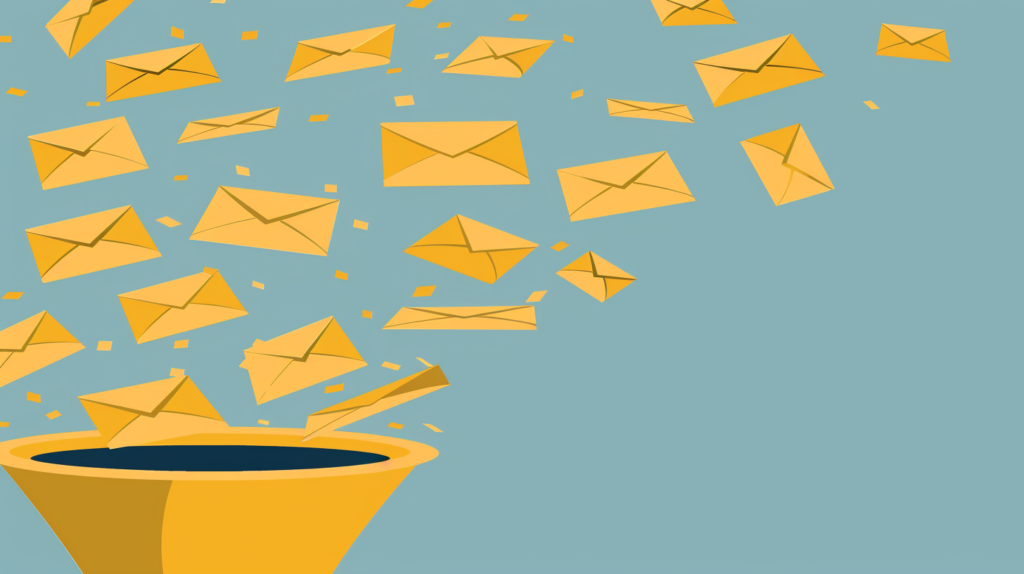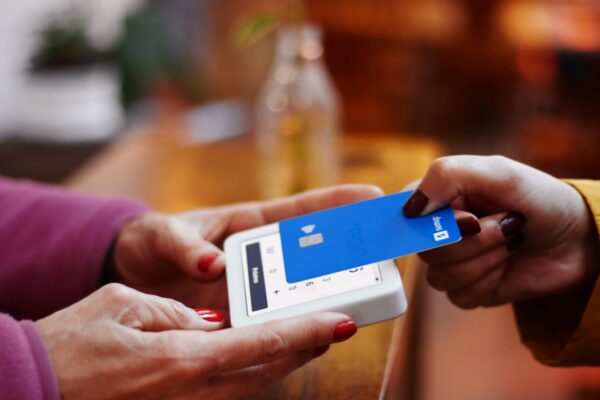If you’re diving into B2B marketing, you know it’s not always straightforward.
We know that email is an essential marketing tool, but here’s the thing: sending random emails just doesn’t cut it.
B2B marketing is about connecting the dots between engaging your professional audience and getting those conversions. Email marketing can be a great tool for building those relationships, but let’s face it, figuring out how to blend email marketing with what we know about marketing funnels can be a bit of a head-scratcher.
So, here’s a handy, step-by-step guide tailored to the quirks of B2B email. Whether you’re sprucing up an old strategy or crafting a new one from scratch, this guide is all about boosting your email strategies to click with your professional crowd genuinely.
Understanding Email Marketing Funnels: B2B vs. B2C
When executed with precision, email marketing can be a transformative tool for both B2B and B2C companies. The concept of a marketing funnel, traditionally used to visualize the customer journey, becomes particularly potent when applied to email strategies.
This approach segments the customer’s journey into distinct stages, each representing a step closer to the final goal of conversion.
In email marketing, this funnel concept is not just a theoretical model but a practical framework for crafting targeted messages, timing interactions optimally, and ultimately guiding prospects through a well-considered journey from initial awareness to loyal customers.
In B2B, email marketing funnels focus on nurturing relationships and providing ongoing value.
The stages start with awareness, where emails introduce the brand’s expertise and solutions. As prospects progress to interest and consideration, communications offer detailed insights, such as case studies or product demos, aligned with specific business needs.
The decision stage involves direct engagement, often with sales teams, and the post-purchase stages emphasize customer retention and upselling.
Email Marketing Funnels in B2B: Deepening Relationships and Providing Value
In the B2B sector, the email marketing funnel is not just about making a sale; it’s about cultivating lasting relationships and delivering continuous value.
B2B purchasing decisions are typically complex, involving a longer decision-making process and multiple stakeholders.
This complexity necessitates a funnel tailored to educate, build trust, and demonstrate value over time.
B2B email marketing introduces the brand and its expertise at the awareness stage.
This is achieved through sharing insightful content, industry reports, and thought leadership articles.
As the potential client moves to the interest and consideration stages, the emails become more personalized, offering detailed case studies, product demonstrations, and solutions that address the client’s business challenges.
The decision and action stages are critical in B2B funnels, involving more direct and focused communication, often with a sales representative’s involvement.
Post-purchase, the email strategy shifts to maintaining the relationship, offering support, and providing information on additional services or products.
Email Marketing Funnels in B2C: Engaging Quickly and Driving Action
Contrastingly, B2C email marketing funnels are designed for quicker engagement to spark an immediate emotional connection and prompt a swift purchase.
The B2C customer journey is generally shorter and more impulsive, requiring attention-grabbing and persuasive emails.
The B2C funnel begins with catching the consumer’s eye through engaging content, special offers, or new product announcements.
The journey swiftly moves through the interest and desire stages, using compelling narratives and strong calls to action to nudge the consumer toward purchasing.
In the decision stage, B2C emails are straightforward and action-oriented, often featuring prominent ‘Buy Now’ or ‘Limited Offer’ calls to action.
After the purchase, the focus shifts to retaining the customer through follow-up offers, recommendations, and content that keeps the brand at the forefront of the consumer’s mind.
Tailoring Strategies to Audience Needs
The distinction between B2B and B2C email marketing funnels is fundamental to developing a strategy that resonates with your audience.
For B2B marketers, the funnel is about building knowledge-based relationships and offering solutions over time. For B2C marketers, success hinges on creating an immediate connection and driving comparatively fast actions.
Businesses can effectively guide potential customers through their buying journey by applying the marketing funnel concept specifically to email.
This approach enhances engagement and conversion rates and fosters lasting relationships with customers, whether in a B2B or B2C context.
Actionable Strategies for Building Effective Email Marketing Funnels
Crafting a dynamic email marketing funnel is about more than just sending emails. Here are a few smart and actionable ways to improve your email marketing.
Personalization and Segmentation
Your email marketing is only as good as your personalization. By leveraging data on user behavior, preferences, and past interactions, you can create personalized email content that resonates with each recipient.
Segmentation takes that a step further. Subscriber segmentation divides your audience into distinct groups based on criteria like demographics, purchase history, or engagement level, allowing you to deliver more relevant content to each subset, improving engagement and conversion rates.
Automation and Triggered Emails
Automation is a key component of an efficient email marketing strategy, such as setting up automated emails triggered by specific actions, like downloading a white paper, signing up for a webinar, or abandoning your shopping cart.
You can maintain a continuous dialogue with your prospects without manually responding to every email. These triggered emails ensure that you engage with your audience at critical moments in their journey, providing them with relevant information or reminders that can guide them closer to a purchase.
A/B Testing
A/B testing can help you truly understand what resonates with your audience. Experiment with different subject lines, email formats, content styles, and calls to action to see which variations perform the best.
These sorts of A/B tests help optimize your email campaigns for higher open and click-through rates, and they give you insights into your audience’s preferences, allowing for more targeted and effective messaging in future communications.
In B2B marketing, where decisions are made with consideration and relationships are paramount, a well-thought-out email marketing funnel becomes your most valuable asset.
From personalizing content to meet the specific needs of your audience segments to automating communications for timely and relevant engagement and fine-tuning your approach through A/B testing, every step should aim to deepen relationships and provide undeniable value.
Remember, your B2B email marketing funnel’s ultimate goal is to make a sale and build a lasting partnership. By educating your prospects, demonstrating your expertise, and showing how your solutions meet their unique challenges, you’ll achieve your immediate sales objectives and cultivate a loyal customer base that sees your brand as an indispensable resource.







